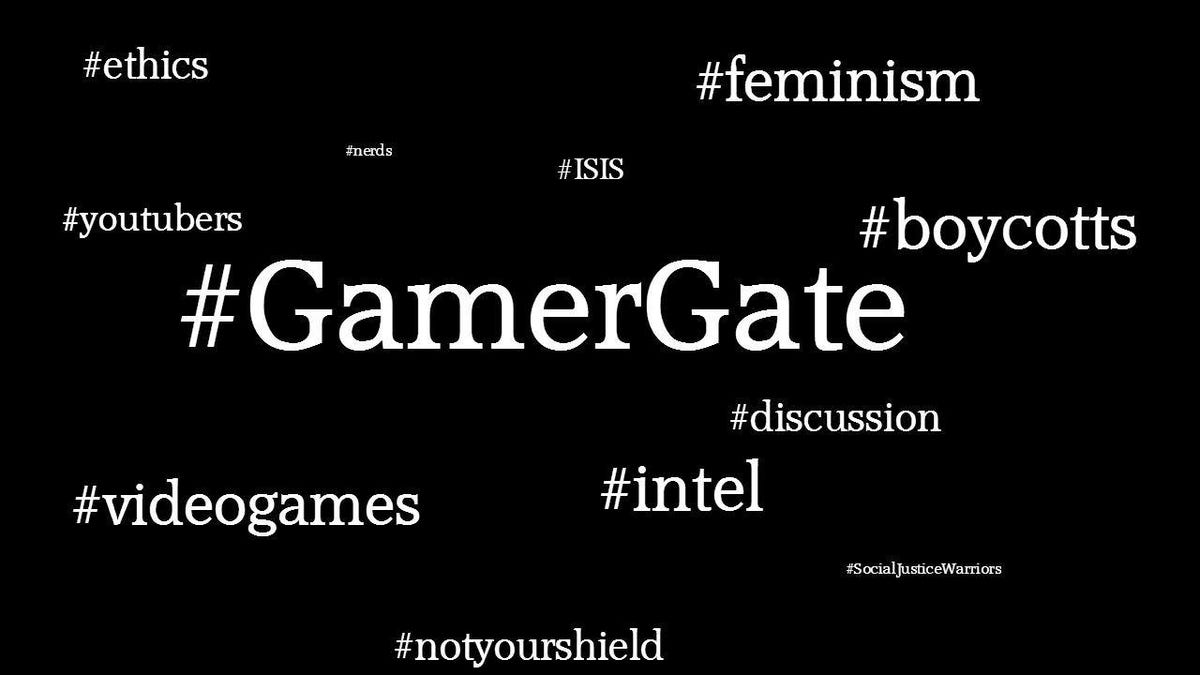With gamergate, we saw groups of gamers, predominantly white males, attack diversity, progressivism, and feminism online. These online attacks began when a vengeful man wanted to punish his ex-girlfriend Zoe Quinn. The gamergate movement was messy and never found direction past threats and abuse.
What gamergate did do was predict a trend in alt-right behaviour that can be seen from Breitbart to Trump’s 2016 presidential campaign to the Jan 6th insurrection. In the case of gamergate, the gaming incident acted as a foreshadower for a cultural trend that has dominated society over the past decade. Gamergate resisted progressivism, diversity and feminism and retorted with abuse and harassment towards their targets.
When wondering why gamergate may have been an accurate predictor of cultural trends it seems essential to acknowledge the medium gamergate took place on. Travelling across social media platforms, gamergate enabled groups of people to come together, under their shared ideals, without having to move physically. The effort was minimal and the accessibility was high, allowing people to come together and act on their shared ideals. Social media provides movements, such as gamergate, the opportunity to build momentum at incredible speed if people agree with a movement’s principles. The accessibility of social media allows people in different geographies to build a collective thought that can then percolate into physical society.
With gamergate, we see people coming together online over am ideology that then results in people acting, physically on that ideology. In this case, a community and ideals that were fostered online translate to physical consequences. Do online communities possibly provide an indication of trends to come through revealing dominant ideologies?
sources:
https://www.vox.com/culture/2020/1/20/20808875/gamergate-lessons-cultural-impact-changes-harassment-laws
theguardian.com/technology/2016/dec/01/gamergate-alt-right-hate-trump


Very interesting post, and I do think that what you hinted at towards the end is true. The dominant ideologies, or the loudest ones, take off on social media over a long period of time. Once they build up movement, you see the real-world applications and consequences. Your analogy to the January 6th insurrection was quite fitting. We live in a very interesting and unique time in which ideologies spread and bounce around like wildfire, making whole movements and trends possible in just a few hours.
I think your explanation on the accessibility of social media being a large factor in its great mobilizing power in social and political movements to be really interesting. I think another aspect as to why social media allows very specific ideological communities to really prosper is because of content-targeting strategies on social media—that is, people who consume a certain type of content are largely only fed and recommended that type of content. This creates echo-chambers on social media, often full of misinformation, extremist or socially conservative ideologies. This also increases polarization on the Internet. A large part of the conversation of the battle of misinformation is to hold social media companies accountable for their content-targeting strategies. I think that if this is not done, we may, as you suggest, see certain online ideological communities expand greatly in coming years and become increasingly vocal and, possibly, dangerous.
Arshaan, I found your discussion of how the accessibility of social media has enabled movements to build quickly, and across large areas, extremely interesting. This led me to think about timescales and potential future events – you mention gamergate, beginning in 2014, and Trump’s 2016 presidential campaign, occurring 6-8 years ago. Since then, social media has become more and more accessible and people using it have become more diverse, so I wonder what impact this has had on your concluding question. Could social media be too big to provide an indication of trends to come through revealing dominant ideologies? I can see there being too many individual online communities, each with varying ideologies, and potentially false information, which would make predictions rather difficult. On the other hand, as there are many more people, we could have more widespread data, and hence more accurate predictions. I think it would depend on how you’re accumulating and analyzing this data, but it’s a really interesting discussion!
This is a really interesting topic area and I do really agree with you on the point of social media, in a way, emboldening physical action from an otherwise disparate vocal minority. Even today, 7 years following gamergate, there’s still a strong presence of gamergate-esque sentiments, particularly with female and LGBT developers and streamers. One of the big ones I can think of recently was the incident with Offline TV member Fedmyster who sexually haraassed many of the women in the streaming house, particularly the controversy with Pokimane. There was a strong backlash against her and others of “they led him on,” “they obviously wanted it,” etc. I don’t know if this is a worthy distinction to make, but it got me thinking if this is a cultural trend that has come and will go, or if these are sentiments that have been out there this whole time and have just been given a louder platform or an emboldening voice.
Super interesting post! I agree especially towards the end. I think part of the reason that gamergate is an interesting predictor of trends is the popularity of gaming. Now only does the internet allow people with shared ideas to come together without physically moving, but since games are so popular, it is a common interest for people of all sorts of opinions. I’m not surprised that gaming was the common interest to advocate for these views just due to how massively popular gaming as a hobby is.